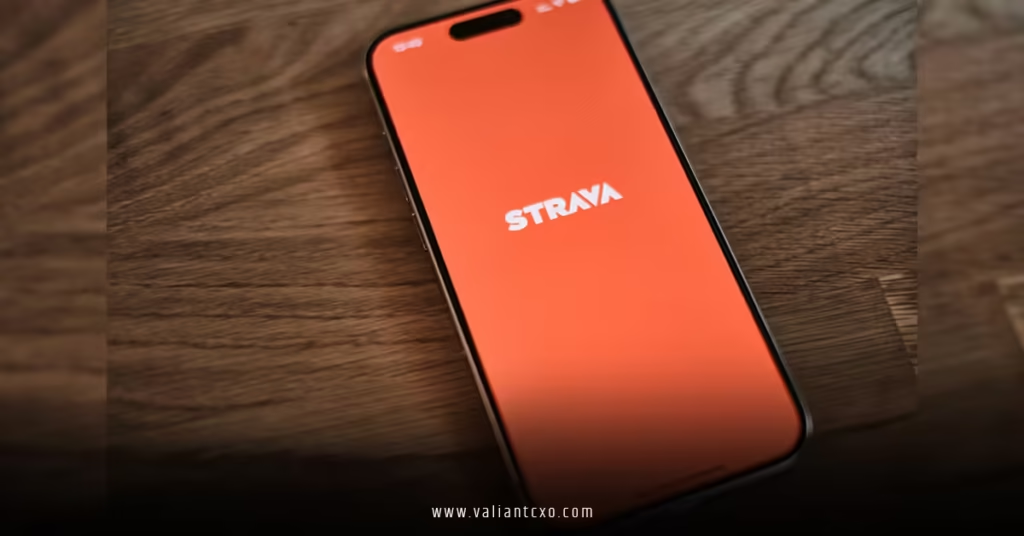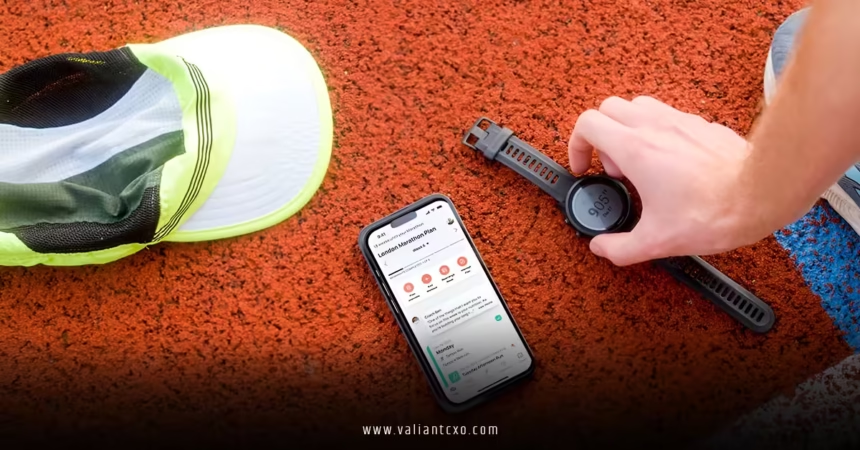Strava Garmin lawsuit impact on fitness apps is shaking the fitness tech world like a runner hitting an unexpected pothole mid-stride. Imagine you’re out there crushing your daily jog, tracking every step on your Garmin watch, and sharing it seamlessly on Strava—only to hear that these two giants are now locked in a legal battle that could change everything. As someone who’s laced up running shoes and synced workouts more times than I can count, I get how this news hits home. We’re talking about patents, partnerships gone sour, and potential ripple effects across the entire ecosystem of fitness apps. Let’s unpack this mess in a way that feels real, not like some dry legal brief.
Understanding the Roots of the Strava Garmin Lawsuit Impact on Fitness Apps
Have you ever wondered how two companies that seemed like best buddies could end up in court? The strava garmin lawsuit impact on fitness apps stems from a decade of collaboration turning competitive. Back in 2015, Strava and Garmin signed a Master Cooperation Agreement (MCA)—think of it as a fitness bromance pact. Garmin got to integrate Strava’s popular “Live Segments” into their devices, letting users compete in real-time on predefined routes. In return, Garmin promised not to expand their own segment features beyond what the agreement allowed. Fast forward to today, and Strava claims Garmin broke that promise by building out competing tools right in their Garmin Connect app.
Picture this: Strava, the social hub where athletes share rides, runs, and kudos, relies heavily on data from devices like Garmin watches. But Garmin isn’t just a hardware maker anymore—they’ve evolved into a full-fledged platform with their own analytics and community features. Tensions boiled over when Garmin started demanding more attribution for data shared on Strava, like slapping their logo on every activity post. Strava pushed back, and boom—lawsuit filed on September 30, 2025, in Colorado’s federal court. This isn’t just about money; Strava wants a permanent injunction to stop Garmin from selling most of their devices. Crazy, right? It’s like if your favorite coffee shop sued the bean supplier for brewing their own blend.
From my perspective, having followed fitness tech trends, this strava garmin lawsuit impact on fitness apps highlights how data has become the new oil in this industry. Strava accuses Garmin of infringing on patents for segments and heatmaps, features that make apps addictive. Segments let you race against others’ times on specific paths, while heatmaps show popular routes like glowing trails on a map. Garmin argues they had similar tech earlier—heatmaps as far back as 2013. If you’re a casual user, this might seem niche, but it could force apps to rethink how they share and monetize data.
The Patents at the Heart of the Strava Garmin Lawsuit Impact on Fitness Apps
Let’s geek out a bit on the tech side—don’t worry, I’ll keep it simple like explaining a HIIT workout to a newbie. The strava garmin lawsuit impact on fitness apps revolves around three key patents Strava holds. First up is Patent 9,116,922, filed in 2011 and granted in 2015. This one’s all about segments: creating user-defined GPS routes where you compare performance times. It’s the secret sauce behind that thrill of snagging a KOM (King of the Mountain) on your local hill.
Then there are the heatmap patents—9,297,651 (filed 2014, granted 2016) and 9,778,053 (filed 2016, granted 2017). These cover generating maps that visualize where people exercise based on aggregated data. Think of it as a crowd-sourced guide to the best running spots, avoiding sketchy areas or discovering hidden gems. Strava says Garmin copied this for their “Trendline Popularity Routing” and heatmaps in Garmin Connect, breaching the MCA by going beyond licensed use.
But here’s the twist that makes the strava garmin lawsuit impact on fitness apps so intriguing: Garmin might have prior art. They rolled out heatmaps in early 2013, before Strava’s patents were even filed. And their segments debuted in 2014 with the Edge 1000 bike computer. If a judge agrees this invalidates Strava’s claims, the whole case could crumble like overcooked kale chips. As an enthusiast who’s mapped countless routes, I see this as a reminder that innovation in fitness apps often builds on shared ideas. Patents protect creators, but they can also stifle collaboration if wielded like a weapon.
Strava isn’t stopping at accusations—they’re seeking damages for “lost revenue, erosion of competitive edge, and harm to goodwill.” In plain speak, they feel Garmin’s features are poaching users who might otherwise pay for Strava Premium. This strava garmin lawsuit impact on fitness apps could set precedents for how companies handle intellectual property in a data-driven world.

How the Strava Garmin Lawsuit Impact on Fitness Apps Affects Everyday Users
Okay, let’s get personal: How does the strava garmin lawsuit impact on fitness apps hit your workout routine? If you’re like me, relying on Garmin hardware to feed data into Strava for social vibes, you’re probably wondering if syncs will break. Strava’s spokesperson assured that they “don’t intend to disrupt Garmin users’ ability to sync data.” Phew—that means your runs should still upload seamlessly, at least for now.
But imagine if the injunction sticks. Garmin might have to disable segments and heatmaps on devices like the Forerunner series or Fenix watches. No more chasing live segment times during a ride? That’d be like removing the scoreboard from a game—still fun, but missing that competitive spark. For fitness apps broadly, this could mean higher costs passed to users as companies lawyer up or renegotiate deals. Premium subscriptions might spike, or features get paywalled harder.
On the flip side, a Garmin win could embolden other apps to innovate freely. Think about it: Apps like Zwift or MyFitnessPal thrive on integrations. If patents get invalidated, we might see more cross-platform magic, like seamless heatmap sharing across ecosystems. The strava garmin lawsuit impact on fitness apps isn’t just corporate drama—it’s about keeping tech accessible for us mortals trying to hit those PRs.
Potential Feature Changes Due to the Strava Garmin Lawsuit Impact on Fitness Apps
Diving deeper, let’s speculate on tweaks. Garmin’s Trails+ feature, launched in 2025 as part of their paid Connect+ sub, uses popularity routing that Strava claims infringes. If forced to remove it, Garmin could pivot to AI-driven routes sans heatmaps. Strava, meanwhile, might tighten API access, affecting third-party apps that pull data. Remember Strava’s 2024 API shakeup? It already ruffled feathers by disrupting integrations— this lawsuit amps that up.
For users, the strava garmin lawsuit impact on fitness apps might mean choosing sides. Stick with Garmin for robust hardware analytics, or Strava for community? I bet many will do both, but with friction if features vanish. It’s like picking between a reliable treadmill and an exciting group class—why not have both?
Broader User Privacy Concerns in the Strava Garmin Lawsuit Impact on Fitness Apps
Don’t overlook privacy in this strava garmin lawsuit impact on fitness apps saga. Heatmaps aggregate anonymous data, but they’ve sparked controversies—like revealing military bases in 2018. Garmin’s push for attribution is about claiming ownership of user-generated data. If Strava wins, apps might hoard data more, limiting sharing. As someone who’s shared routes publicly, I worry this chills the open spirit of fitness communities.
The Ripple Effects: Strava Garmin Lawsuit Impact on Fitness Apps and the Industry
Zooming out, the strava garmin lawsuit impact on fitness apps could reshape the entire sector. Fitness tech is a $100 billion market, with apps like Peloton, Apple Fitness+, and Nike Run Club vying for your sweat equity. If Strava succeeds, expect more patent suits—maybe against Komoot or Ride with GPS for similar mapping tools. It’s analogous to the smartphone wars of the 2010s, where Apple and Samsung battled over gestures.
For startups, this strava garmin lawsuit impact on fitness apps raises barriers. Building a new app? Better lawyer up to avoid infringement claims. Innovation might slow as companies play safe, sticking to basics instead of bold features. Yet, if Garmin countersues (they hold thousands of patents), it could level the field, forcing fairer licensing.
Economically, Strava’s eyeing an IPO—suing a partner might spook investors, signaling desperation. Garmin, a hardware behemoth, could absorb hits better. The strava garmin lawsuit impact on fitness apps underscores shifting dynamics: Hardware makers like Garmin are encroaching on software turf, while apps like Strava crave device independence.
Opportunities for Competitors Amid the Strava Garmin Lawsuit Impact on Fitness Apps
Here’s a silver lining: Rivals could capitalize. Apps like MapMyRun or Runkeeper might swoop in with better integrations. Open-source alternatives could emerge, democratizing data. In my experience testing apps, variety keeps things fresh— this drama might spark that.
Long-Term Innovation Shifts from the Strava Garmin Lawsuit Impact on Fitness Apps
Looking ahead, the strava garmin lawsuit impact on fitness apps might push AI and VR integrations. Instead of patented maps, apps could use machine learning for personalized routes. It’s exciting, like evolving from basic trackers to smart coaches.
Navigating Alternatives in the Wake of the Strava Garmin Lawsuit Impact on Fitness Apps
Feeling stuck? Don’t sweat it—the strava garmin lawsuit impact on fitness apps opens doors to alternatives. Switch to Suunto or Coros watches for Garmin-like hardware without the drama. For social tracking, try Komoot for routes or Zwift for virtual races. Mix and match: Use Garmin for data, export to Strava manually if needed.
As an avid user, I’ve experimented—diversifying apps keeps motivation high. This lawsuit reminds us not to put all eggs in one basket.
Conclusion: Embracing Change in the Strava Garmin Lawsuit Impact on Fitness Apps
Wrapping this up, the strava garmin lawsuit impact on fitness apps is a wake-up call for the industry. From patent clashes over segments and heatmaps to breached agreements, it’s exposed cracks in partnerships. Users might face feature tweaks, but syncs should hold. Broader effects? More competition, potential innovation stalls, but ultimately, a push toward fairer tech ecosystems. Don’t let this deter your fitness journey—grab your gear, hit the trail, and stay tuned. Who knows? This drama might lead to even better apps. Keep moving, folks!
FAQs
What exactly is the strava garmin lawsuit impact on fitness apps about?
The lawsuit centers on Strava claiming Garmin infringed patents for segments and heatmaps, potentially forcing changes in how fitness apps handle route data and competitions.
Will the strava garmin lawsuit impact on fitness apps stop me from syncing my Garmin watch to Strava?
Strava has stated they won’t disrupt syncing, so your workouts should still transfer smoothly despite the ongoing legal battle.
How might the strava garmin lawsuit impact on fitness apps affect subscription prices?
If damages are awarded, apps like Strava or Garmin Connect might raise premium fees to cover costs, impacting users who rely on advanced features.
Are there alternatives to avoid the strava garmin lawsuit impact on fitness apps drama?
Yes, apps like Komoot or Runkeeper offer similar mapping and social tools without the current tensions between Strava and Garmin.
Could the strava garmin lawsuit impact on fitness apps lead to better innovations?
Potentially—legal pressures might encourage companies to develop unique, non-infringing features, benefiting the overall fitness app landscape.
Read More:valiantcxo.com


